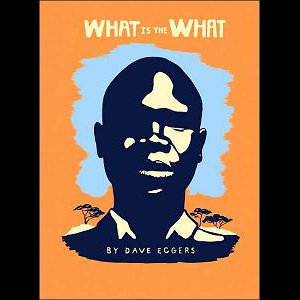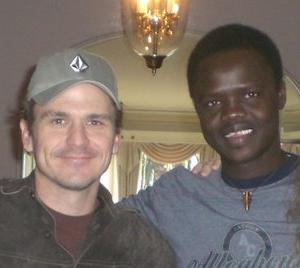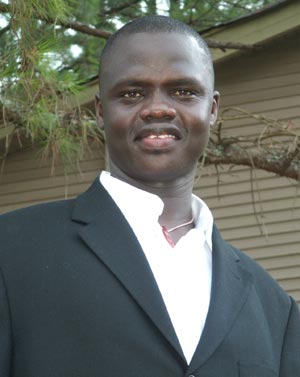Book Review: What is the What by Dave Eggers
 | | What is the What |
Struggle is an inevitable part of life, but when confronted with a story like the one told in Dave Eggers’ What is the What, one gains perspective. Though the novelization of the life of Sudanese Lost Boy Valentino Achak Deng deals with intensely serious subject matter—doling out an extensive laundry list of unspeakable ordeals—it’s a surprisingly easy and enjoyable read. Even a person disinterested in the politics of Africa will be drawn in on page one because, even though this novel aims to raise awareness, it is told in the most human of ways.
The novel opens with Achak living in Atlanta, where he is held at gunpoint and robbed in his own home. While lying on the floor—bound and bleeding—Achak begins to relate his life story in a somewhat nonlinear fashion. We learn how, as a boy, he was displaced from his home in rural Sudan by a brutal civil war, how he was forced to witness truly horrific acts of violence and callousness, how he made his way—on foot—to Ethiopia and then Kenya, and how he eventually came to live in the United States. Eggers weaves the stories together with playful ease, keeping the reader entranced with the juxtaposition of life in wartorn Africa with life in America.
 | | Dave Eggers and Valentino Achak Deng - picture taken from mcsweeneys.net |
Though the novel is billed as fiction, it is a mostly true story. Unfortunately, thanks to the pointless scandal surrounding James Frey’s A Million Little Pieces (a fantastic book, by the way), a mostly true story nowadays has to be called fiction or else it risks the almighty judgment of Oprah. Eggers, who became friends with Achak, is meticulous in his effort to capture Achak’s voice, so much so that his own flowing writing style is almost impossible to excavate from the text. And the two worked together over the course of three years to get the story right, even though they had to compress a few characters, gloss over a few details, and give some events a fictional flare that keeps the reader from putting the book down. This approach has been the subject of controversy, but I personally don’t take any issue with it, mostly because I don’t believe there is such a thing as a “true” story without at least a little bullshit. Therefore, as far as I’m concerned, this novel is non-fiction.
The other potential controversy that could be raised from the book deals with how it portrays modern America and the American dream, which is one of the core ideas of the novel. A flag-waving zealot will think the story is too critical of America, whereas a liberal nutjob will think it’s borderline jingoistic. As I see it, though, it is an honest portrayal of modern America, with all of its flaws and all of its promise. No punches are pulled, no lies are told, and nobody can read that half of the story and convince me it can’t happen.
 | | Valentino Achak Deng |
However, the main focus of the book is Sudan. Though the modern world is interested in the conflict in the Darfur region, the whole of Sudan has been suffering for quite some time, and this book is passionate about illustrating it. In the timeline of Achak’s story, which preceeds Darfur, Sudan undergoes a civil war after the Arabic north tries to inflict sharia law upon the non-Arabic south. The lines between good and evil are quickly blurred, however, as rebels become the source of as much danger to the innocent as the bloodthirsty murahaleen.
Still, through it all, this deathly serious book is told in an almost whimsical way, making the potentially devestating blows—like boys being torn apart by bombs, stalked by lions, and forced to hide among the festering bodies of the dead, etc.—easy to digest. Achak (or at least Eggers’ interpretation of him) is such a charismatic narrator that he can detail the atrocities of his life with an ease that keeps you glued to page after bloodsoaked page, and ultimately, he comes out with a smile and a parade of hope.
My final assessment, therefore, is this: you need to read this book. Though you will enjoy it, it will give you something to help you through the struggles of your own life; it will give you perspective.
-e. magill 02/25/2008
|
|